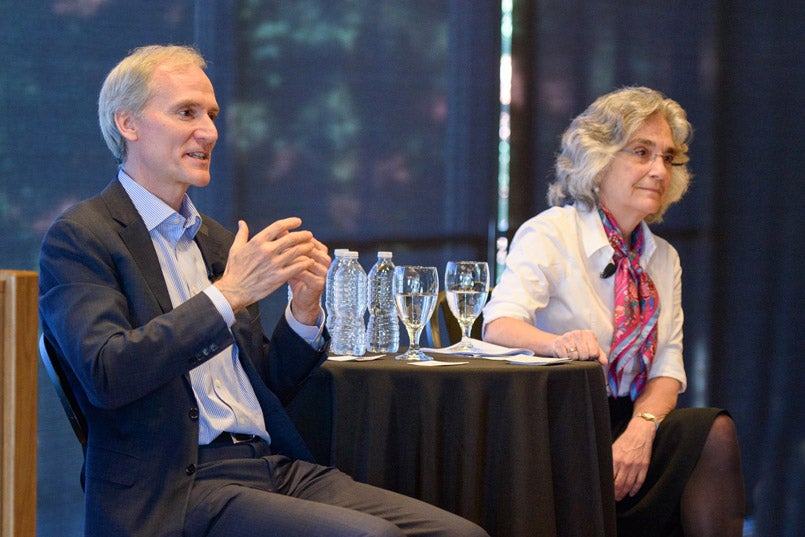November 27, 2017
Sustainability: Now is not the time to slow down
I always remind myself and my colleagues and students that the goal of sustainability is not going to be met overnight. I define sustainability as “intergenerational well-being,” or “meeting the needs of people today, but in ways that make it possible for future generations to meet their needs,” or “protecting people and our planetary life support system.” It will take concerted efforts by many individuals and groups of people, learning from both successes and failures, and it will take time to reach a sustainable society.
There’s plenty of evidence, however, that we are making progress; we are well into a transition toward sustainability. We have been moving in the right direction, and our immediate job is to move that transition much, much faster.
2017, I admit, has felt more like we’re losing than gaining ground, at least in the U.S. So many critical aspects of human well-being – for example, education, health care, supportive infrastructure, and environmental quality – seem to be challenged and losing momentum. Progress toward reducing and responding to climate change is a case in point. We have decades of scientific research that provides very clear evidence that climate is changing and we’re causing it. How many more times do we have to argue those facts, and argue that it will indeed matter to us humans and affect us in negative ways as we change the climate? How many more times do we need to argue that our lives are dependent on a stable climate along with well-functioning ecosystems, smart infrastructure, innovative technologies, great social networks, and strong, healthy, educated people? Losing ground on the transition to sustainability is a terrible idea, in part because too many things, including climate change, have a time lag associated with them and cannot be turned on a dime. We need forward action now.
It’s a depressing time in the U.S. However, luckily for us at Stanford, we’re part of a great university, the forward-thinking state of California, and a global society that is, quite simply, moving ahead without the U.S. We are tackling sustainability challenges. Among many other things, we are making progress on climate change mitigation with more and more commitments and broader engagement (even if current CO2 records are not encouraging). More and more corporations understand the need to address climate change and are acting, and more and more NGOs and governments are working hard to make change happen. And we at Stanford are, too.
As I step down after 15 years as a Stanford dean, I can see the huge progress we’ve made as a community of researchers, students, teachers, administrators, land and resource managers, building designers and operators, food and housing providers … and I know we’re moving ahead fast. At this point, in the midst of the long-range planning process led by President Tessier-Lavigne and Provost Drell, we’re asking what’s next for us as a purposeful university. There’s no doubt that part of the answer is to push faster and harder toward sustainability goals, and to help the rest of the world do so, too.
As I move on to the next step in my career and life, I will continue to teach about systems approaches for a sustainability transition; our new co-terminal master’s program in Sustainability Science and Practice is just one part of my effort there. But I’m also asking what more can I do, personally and professionally, to speed the transition to sustainability. Now’s not the time to slow down!
